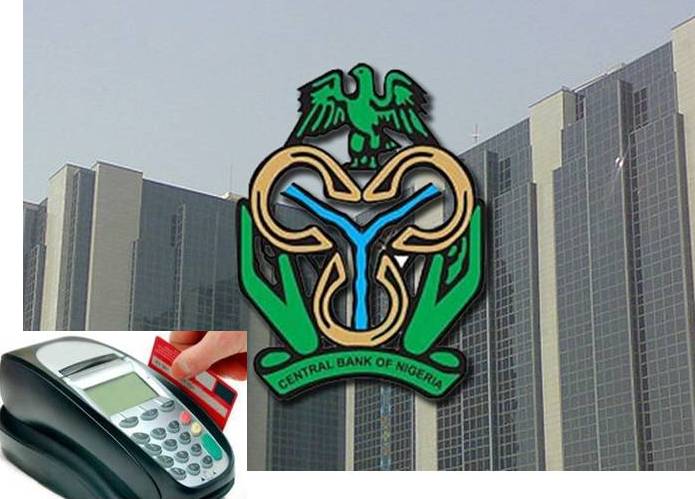It is over a decade since Nigeria opted to go cashless but the cashless policy of the Central Bank of Nigeria (CBN) has not gained much traction considering the early expectations. Why is this so? Has the cashless policy failed outside of Lagos and Abuja where there are semblances of cashlessness?
The cashless policy was implemented to reduce heavy cash dependence and improve the penetration of e-payments in Africa’s largest economy of over $510 billion GDP. But once outside of Lagos and Abuja, you know the cashless policy and its drivers have not achieved much.
Since the country’s financial regulator, the CBN, launched and designed the scheme to help drive web and mobile based transactions, many will debate its success. Though critics will say the poliey has been under-implemented, e-payments have galloped with greater penetration than earlier anticipated and in spite of Nigeria’s infamous infrastructural challenges that include erratic power supply and bandwidth paucity.
The spinoff effects have also been remarkable as global epayment players including SecureCard, a global card manufacturer, and Paypal, a payment company which provides online payment alternatives for consumers via mobile and PCs have joined the Nigeria’s epayment landscape which has significantly impacted on the country’s epayment platform in terms of global acceptability. But the limitations to use card-based transactions are obvious in major urban centres and blight on the country’s epayment goals.
Has the CBN lost steam to drive the cashless theme? Increasingly, the cashless policy appears to have gone dodo and there is very little attempt in reducing the amount of cash in the economy. What the CBN, has achieved, perhaps, is a heightening of long queues for cash outside the banking halls as customers queue in front of frail and poorly serviced ATMs.
The CBN’s policy may have helped the ATMs to become more ubiquitous, but it has not truly encouraged cashless transactions as enthusiastically expected. As an IT Edge News survey indicates, cash withdrawal and balance inquiry are the most used features of the ATMs even though the system can do more including money transfer, payments for services including airline ticketing. The widely distributed PoS (point of sale) terminals are still scarcely used by merchants.
In cities like Enugu, Jos, Minna, Kaduna and several others, traders still prefer cash. People wanting to use the PoS are forced to pay ‘PoS’ charges for daring to desire to be cashless.
The CBN needs more consistent enlightenment campaigns and a stronger policy enforcement to ensure higher usage by merchants. And the financial regulator also needs to declare if it is still desirous of making Nigeria cashless.
The future of money and financial transactions is cashless. The CBN has to proactively and aggressively pursuit its original mandate to make Nigeria cashless. It has to drive the policy to make 100 per cent of financial activities across many banks in Nigeria moved to electronic channels using ATMs, internet banking, PoS and others.
Government too has the duty to pursue the set up of support infrastructure. Telecom or connectivity operators need to be induced for a wider and stronger nationwide rollout.
Meanwhile, the CBN has to strengthen its cashless framework, work on the existing policy flaws to push a nationwide cashless to improve the acceptability level of e-payment. The regulator must firm up its goals for massive deployment of terminals and other support infrastructures including connectivity pipes to improve from the nationwide bandwidth build-up designed in the country’s new broadband deal.
An efficient cashless economy ultimately benefits the country as it drives new level of growth. Even experts within the CBN admit this much to quote just one: “An efficient payment system is good for the transmission of monetary policy and that is why it is important to us at the CBN. It is also good for financial stability because a stable financial system is seen through how efficient the payment system is. Once a payment system is in turmoil, it affects the financial system. So a very effective payment system is going to be an effective anchor for the transformation of our economy, even as we strive to be one of the 20 biggest economies in the world by 2020.”
The access to financial services survey conducted by EFInA in 2012 shows that the banking penetration in Nigeria is relatively low. Only 32.5 per cent of the adult population in Nigeria were banked, 61.4 per cent of the adult population had never been banked, 3.4 per cent previously banked had left the banking system. Further survey shows that 86 per cent of the rural population are currently unbanked, while 98 per cent of those with no formal education in Nigeria are unbanked.
This figure has not significantly altered in 2019. Issues like product complexity (KYC) requirement, high cost of financial service, and distance to financial service outlets which have attributed to the failure of banks to provide financial service for the bottom of the pyramids (BOPs) who constitute the critical mass of Nigerians still persist. All these constitute a major hurdle to achieving a Cashless Nigeria.





























